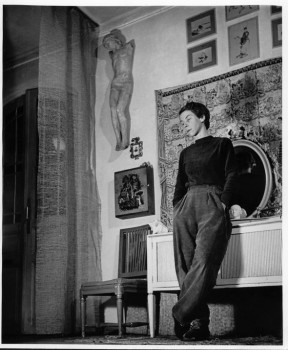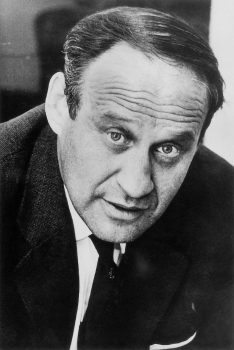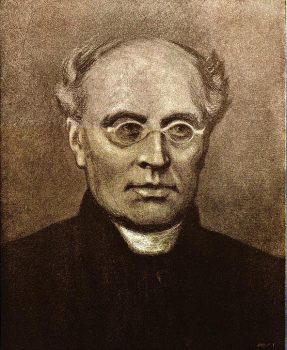Search results for "2011/04/2010/05/song-without-words"
Man and boy
31 December 2006 | Archives online, Fiction, Prose
Extracts from the novel Kansallismaisema (‘National landscape’ Tammi, 2006). Introduction by Tuomas Juntunen
Plans were afoot to establish boys’ camps across the country. This was an experiment, a chance to test the water, to be a pioneer. Here was the opportunity to be the first in line to conquer the Wild West, just as many a brave cowboy had done in years gone by. The Ministry of General Affairs planned to put all 15-year-olds to work for the duration of the summer holidays. Casual labourers were often even younger. Our task was to ascertain a suitable minimum age. In addition, special camps were planned for those not suited to normal work camps. In the summers to come the youth of Finland would be fully employed. Weren’t we in fact driven by the same desire, Tikka had wondered. We both cared about the next generation. We wanted to root out their deficiencies so that they would be able to face life’s challenges to the full. More…
Hip hip hurray!
13 June 2014 | This 'n' that

Tove Jansson, 1956. Photo: @Moomin Characters™
The English author of bestselling children’s fantasy books Philip Pullman – of His Dark Materials fame – declares himself a devoted fan of Tove Jansson, the Finnish Moomin-creator and artist, whose stories and novels have been translated into 44 languages.
Pullman has been a fan since the age of eight – now, reassessing Jansson’s work, he notes ‘the perfection of the drawings’. Jansson illustrated her Moomin books, in black-and-white mostly.
Pullman reviews two books in Books for Keeps, the British online children’s book magazine: the newly translated biography of Tove Jansson (1914–2001) by the Swedish scholar Boel Westin (Tove Jansson: Life, Art, Words, Sort of Books, 2014) and Tove Jansson’s memoir from her childhood, Sculptor’s Daughter. ‘Jansson responded to the world with a freshness and originality that have hardly ever been matched in the field of children’s books,’ he writes.
The artist, painter, writer Tove Jansson was born on 9 August – almost a hundred years ago. A major centenary exhibition of her work at the Finnish National Gallery Ateneum is open until 7 September.
Pullman concludes: ‘she could convey all the excitement of wonder as well as the reassurance of comfort and familial love – and [–] evoke a mood of apprehension, loss and mystery. She should have had the Nobel Prize.’
Three cheers – we at Books from Finland agree!
Adam, Eve and vegetarianism
30 September 2006 | Archives online, Fiction, Prose
Short prose from En god Havanna. Besläktad (‘A good Havana. Kith and kin’, Söderströms, 2006). Introduction by Bror Rönnholm
Ode
My alter ego has relatives who have bad teeth and the names of Greek gods. They live in ramshackle houses in suburbs which the taxi drivers can’t find, dangerous ex-no man’s lands in a rapid metastasis into concrete. They are wild and threatened with extinction, they are Finland-Swedish working class. Disorganised, of course they’re disorganised, my alter ego’s relatives never organise themselves. They don’t form part of any community other than their own. They go to sea and they breed, they buy shuteye dolls in whore ports and return home in grand style, always at night, always one surprising night when no one is expecting them. The women raise a cry of joy, the children go leaping barefoot, and the dog, which is called Zeus-Håkan, is quite beside himself. There’s a party. There’s no school that day. At twilight the women travel to their jobs in key factories and warehouses. When they come home the party continues and in the outside toilet there are new pictures of new places. My alter ego’s relatives have dyed hair and prominent busts in tight-fitting silver nylon jumpers. They pay for my alter ego’s father’s education so he can become middle class. They are proud of him. When we go to visit them they dress up. They clap their hands and the nail varnish peels as they loudly, just a shade too loudly, shout OH, oh splendid, such fine guests! My alter ego’s father is grateful and confused. He has long ago paid it back, paid the money back, and now what’s left is only what cannot be repaid.
With the passage of the years my alter ego’s working-class relatives are disappearing from my alter ego’s life. I miss them. More…
Living with Her Ladyship
31 December 2003 | Archives online, Fiction, Prose
Extracts from the memoir of a Helsinki childhood, Från Twenty Gold till Kent (‘From Twenty Gold to Kent’, Schildts, 2003). Introduction by Pia Ingström
My hair was dark and stuck up from my skull like little nails. My face was furrowed with red, my throat was wrinkled and I didn’t even have a pretty navel. This was because Daddy had to knot my umbilical cord himself while the obstetrician was busy on the ground floor with an appendix.
‘She looks like a forty-year-old errand-boy from the newspaper’s office: Daddy announced.
Mummy said she hoped I would soon change and have a long neck.
At Apollogatan street we took the lift up to the third floor where my sisters were waiting with the new nanny. They had no chance to welcome me with singing as they’d planned because both Renata and Catherine had colds. Nobody was going to be allowed to breathe anywhere near me, Mummy and Nanny were entirely agreed on that. More…
Chronicles of crisis
31 December 1982 | Archives online, Fiction, Prose
Books from Finland presents here an extract from Dyre prins, a novel by the Finland-Swedish writer Christer Kihlman that is to be published in 1983 by Peter Owen of London under the title Sweet Prince, in a translation by Joan Tate.
Christer Kihlman (born 1930) first became known as a poet; but, after publishing two collections of poetry, he turned to novels. He has been branded a merciless scourge of the bourgeoisie. Equally important in his writing, however, are his masterly psychological analyses, his examination of the myriad aspects of the human personality, his sovereign disregard for taboos and his unflagging search for the truth. His books are about crises – the conflict between the generations, between the individual and society, between opposing political ideologies, between homosexual and heterosexual love. As Ingmar Svedberg remarked in an extensive appreciation of Kihlman’s work that appeared in Books from Finland 1-2/1976, ‘In his perceptive moral analyses, his exploration of the depths of human destructiveness and degradation, Kihlman is sometimes reminiscent of Faulkner.’ Since 1970, Kihlman has published three revealing autobiographical works, two of them dealing with his encounter with South America; Dyre prins, first published in 1975, represents a brief interlude of fiction.
The extract printed below is accompanied with a personal appreciation of the novel by its English translator, Joan Tate
Grandfather’s astonishing revelation gave me a new perspective on my life. I had suddenly been given a concrete, genuine foundation for both my hatred and my self-esteem. In a way I took the story of my origins as an extreme confirmation of the rightness of the Communist interpretation of reality, and at the same time it gave me a wonderful, dazzling sensation of being someone, despite everything, of having a place in a meaningful human perspective of time, despite everything, of being a link, however modest, in the historical family tradition. I did not need to found a dynasty; I already belonged to a dynasty, if only a minor branch. One was less important than the other, and even if the two experiences were irreconcilable and contradictory, they existed all the same in the same consciousness, contained within the same consciousness, my consciousness. I, Donald Blad! More…
Kullervo
31 March 1989 | Archives online, Drama, Fiction
An extract from the tragedy Kullervo (1864). Introduction by David Barrett
The plot of the Kullervo story as told in the Kalevala: Untamo defeats his brother Kalervo’s army, and Kalervo’s son Kullervo is born a slave. Untamo sells him as a young child to llmarinen whose wife, the Daughter of Pohjola, makes the boy a shepherd and bakes him a loaf with a stone inside it. Kullervo takes his revenge by sending home a flock of wild animals, instead of cattle, who tear her to pieces. He flees, and discovers that his parents and two sisters are alive on the borders of Lapland. He finds them, but one of his sisters is lost. Life in the family home is unhappy: Kullervo fails in all the tasks his father sets him. On his way home one day he finds a girl in the forest whom he abducts in his sledge and seduces. It turns out the girl is his lost sister, who drowns herself when she learns that Kullervo is her brother. Kullervo sets out to revenge himself on Untamo; he kills and destroys. When he returns home, he finds the house empty and deserted, goes into the forest and falls on his sword.
ACT II, Scene 3
Kalervo’s cottage by Kalalampi Lake. It is night-time. Kimmo, seated by a fire of woodchips, is mending nets. More…
Des res
Extracts from the novel Juoksuhaudantie (‘The Trench Road’, WSOY, 2002)
Matti Virtanen
I belonged to that small group of men who were the first in this country to dedicate themselves to the home front and to women’s emancipation. I feel I can say this without boasting and without causing any bickering between the sexes.
A home veteran looks after all the housework and understands women. Throughout our marriage I have done everything that our fathers did not. I did the laundry, cooked the food, cleaned the flat, I gave her time to herself and protected the family from society. For hours on end I listened to her work problems, her emotional ups and downs and her hopes for more varied displays of affection. I implemented comprehensive strategies to free her from the cooker. I was always ready with provisions when she got home exhausted after a day at work. More…





